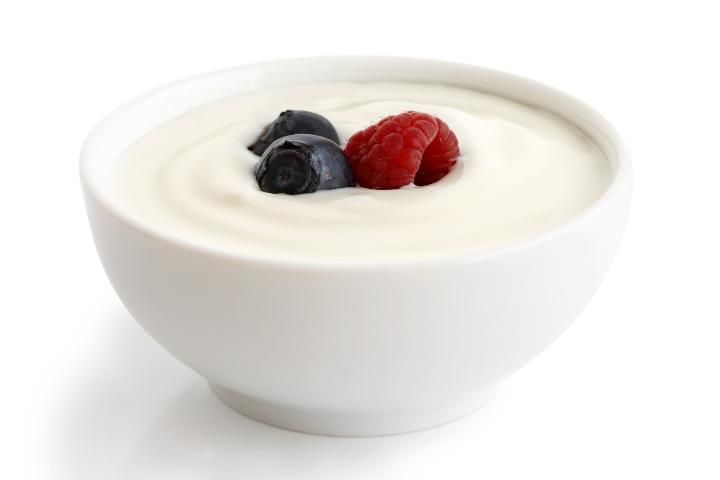What is calcium?
Calcium is the primary mineral found in our bones and teeth. We need calcium for the proper functioning of muscles and nerves. Calcium also helps our blood clot.
Calcium is a critical nutrient at every stage of life. We are best able to put calcium into our bones to make them strong early in life. Then, as we get older, it is essential to get enough calcium to avoid bone loss. Vitamin D helps us absorb calcium, so getting enough of this nutrient is important throughout our lives.
Many older people do not get enough calcium from the foods they eat. This can lead to the bone disease osteoporosis. People with osteoporosis are at high risk of having a bone fracture.

Credit: iStock/Getty Images Plus
What foods contain calcium?
In the US, the major sources of calcium for many people are dairy foods. This includes milk, yogurt, cheese, and ice cream. For heart health, low-fat or fat-free versions of dairy foods are recommended.
Many green vegetables are good calcium sources, too. Kale, romaine lettuce, and broccoli all provide calcium. Spinach contains many nutrients, including calcium, but the oxalic acid in this green vegetable keeps calcium from getting into our bodies.

Credit: Nora Kuby. Used here under Creative Commons license CC BY-NC-SA 2.0. Source: http://flic.kr/p/6Dd3M8
Other calcium sources are legumes (such as kidney beans, pinto beans, black beans, and lentils), tofu (processed with calcium), and nuts. Many foods are fortified with calcium. You can even get calcium in orange juice!
What happens if I do not get enough calcium?
Because it is needed for so many body functions, our bodies have hormones that control our blood calcium levels. When you don't get enough calcium, your body releases parathyroid hormone (PTH), which causes calcium to be taken from your bones to keep blood levels normal.
Over time, if you don't get enough calcium, your bones will begin to become porous and weak. As your bone loss becomes severe, you may develop the bone disease called osteoporosis. Your doctor can order a bone density test to diagnose osteoporosis.
What are hormones?
Hormones are chemical messengers. They are made in one part of the body and then travel to another organ or tissue. Once there, the hormones affect specific body processes.
How much calcium do I need?
The recommended intake for men ages 19–70 and women ages 19–50 is 1,000 milligrams of calcium each day. Women 51 years and older and men over 70 should aim to get 1,200 milligrams of calcium each day. This is more than most people get from the foods they eat. Some people may need more calcium to decrease their risk of osteoporosis. Check with your health care provider to see how much calcium you should get each day.
To get the calcium you need, eat foods that are naturally high in calcium, as well as foods that have calcium added. If you think you are not getting enough of this mineral, look at the list of foods containing calcium and choose one or two to add to your diet. Speak with your health care provider before you decide to take calcium supplements.
Where can I get more, reliable information about my nutrition?
Your local UF/IFAS Extension Family and Consumer Sciences (FCS) agent may have more written information and nutrition classes for you to attend. Also, a registered dietitian (RD) can provide reliable information to you. Call your Area Agency on Aging for information about meal programs that may be offered in your area. Reliable nutrition information may be found on the Internet at the following sites: